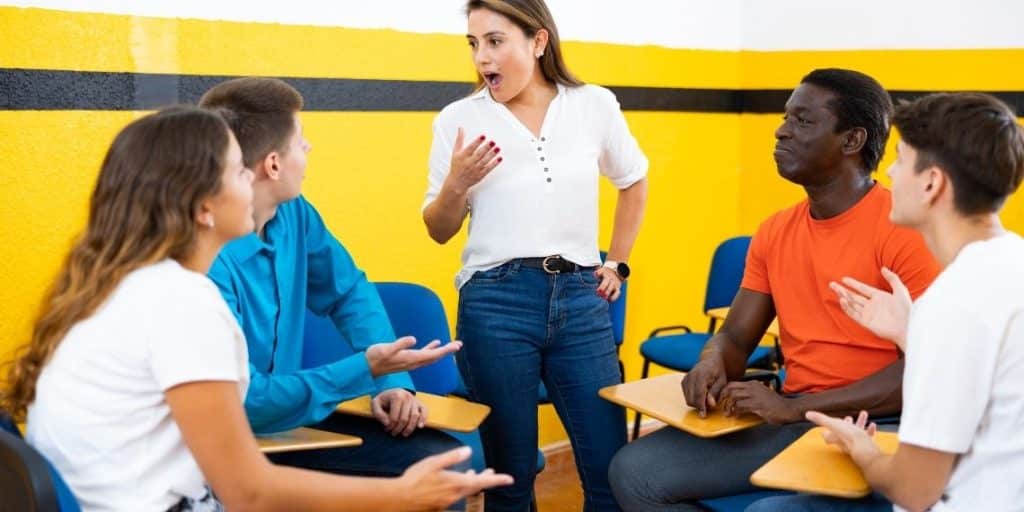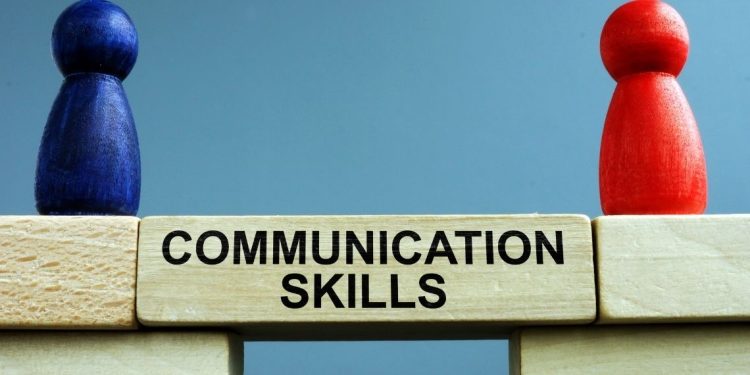Communication skills are highly effective means of expressing feelings, sharing information, and building relationships with people in the societies we live in. We cannot imagine life today without effective communication. In a fast and globally interconnected world, communications is an essential tool for personal and professional success since its use will gain you a deeper and broader reach, network of contacts, which is essential to master communication skills with nonverbal, spoken, or written languages if you want to achieve better understanding, even have positive collaboration and conflict resolution.
Communication, as a core component of social life, has always been behind the people’s development. Since time immemorial, great speakers have been the agents of change influential enough to charm, mobilize and steer the course of events. The art of communication is a near-perfect example of the use of technology in our world. The most interesting aspect is that no one can deny the importance of the ability to clarify and convince the listener, who is negotiated in that form at the time of the audio or video call.
Introduction to Communication Skills
The importance of communication skills in business goes beyond the simple exchange of information. Being able to create a bound with the person one is exchanging information with, to be able to read and understand their points of view, and to have a mutual sense of trust and respect, are the main factors affecting communication. Through the enhancement of these skills, people can become the better version of themselves and also create a joyful environment to work and live in.

Table of Contents
Components of Effective Communication
Effective communication involves the use of several main components:
Verbal Communication
The verbal method of communication is a means of transmitting messages through the use of words. This, indeed, consists of not only the content but also the voice and the intonation. The stress, clarity, and language selection all count when ameliorating the message originality. Besides one of the most effective ways to communicate your message is by asking questions elicit more info about the topic being discussed by the speaker (Leser, 1965).
Nonverbal Communication
Nonverbal communication is formed through body language, facial expressions, gestures, and posture. These signals are often richer than spoken words, and they can clarify spoken words. By doing so, the understanding and interpretation of nonverbal signals, will be able to help to send and receive messages effectively.

Components of Effective Communication
Effective communication is the process combined with numerous main components.
Verbal Communication
Verbal communication portrays the message by using words. This sort of message includes not only the phrases used but also the tone in which they are said. Such aspects as the tone of voice, accuracy, as well as the words selection play the most significant role in understanding the message as meant. To make oral communication effective, learners need to listen actively which is a kind of listening where a person is fully directed to the speaker.
Nonverbal Communication
Nonverbal communication involves body language, movements, facial expressions, and the way you position your body. These cues can tell you more than just the words that people are using. Through this, students and teachers can make the lesson more exciting and clear. They can make them recognize what the real meaning of some words are by the way the teacher uses different movements, expressions, and gestures. Understanding and interpreting nonverbal signals can improve communication by giving context and deep emotional meaning to the message being conveyed.
Applications in Various Fields
Communication skills are relevant across many sectors:

Workplace
To work efficiently in a job environment, excellent communication skills are the most important thing to have. Clear and effective communication is of vital importance if we want to fulfill our goals for tasks being understood, feedback being given, and finally the goals being” attained. Furthermore, it is a lot easier to settle disputes, increase trust, and build trust in a productive work environment.
Education
Either in educational setups, teachers-professors, as well as students, also, need to possess quality-communication skills. While teachers inform the students and have them participate, students also learn valuable communication skills like learning in groups and sharing their point of view with others that gradually lead to great outcomes.
Healthcare
For medical processes and visitation, the competent healthcare workers’ major requirement is effective communication with patients, family, and co-workers. Transparency in communication is one of the ways how patients learn and understand their diagnosis plus treatment plans which in turn may contribute to the proper functioning and health of their bodies. To deliver the best care, it is crucial to be honest and caring to the patient as well as to be an active listener.
Personal Relationships
Communication plays a significant role in interpersonal relations, where collaboration is key to survival. Adapting to effective communication, the emotional, conflict, and generation of need backgrounds are exchanged between on the one hand, and the understandability of each other’s reality, in the end, is the result of being on the same wavelength.
Benefits of Strong Communication Skills
There are many benefits of strong communication skills:
Enhanced Relationships
Good communication makes relationships more friendly and positive than before. Being able to determine the issues and concerns of others and being able to work through them is the key factor that makes interactions more peaceful and tranquil between the parties.
Improved Collaboration
Strong communication is important for teamwork and project teamwork. One should be very specific in their description of the project to be used by every member, one should be very precise, and also the project should be the same for all. Furthermore, this technique also produces solutions for misunderstandings and conflicts which are more efficient and quick.
Increased Confidence
Growing better communication abilities will boost the feeling of confidence of your personality. Being able to articulate thoughts and ideas clearly makes individuals feel self-assured and willing to participate in conversations. Moreover, the skill of public speaking allows them to provide presentations and to lead with persuasion and influence.
Ways to Improve Communication Skills
Improving communication is a matter of deliberately exercising and reflecting on your internal states:
Practice Active Listening
Instead of hearing to answer, give ear for the sake of understanding. Besides, try being empathetic by imagining how the speaker feels and then reacting with that information.
Enhance Nonverbal Communication
Remind yourself of your body’s movements, facial expressions, and hand signs during the whole time. Show not only your friends but also your family through your nonverbal feedback that you mean your words and do not want any confusion.
Develop Writing Skills
The correct thing is to write clearly and in a short and succinct manner. Among other things, be attentive to proper grammar, punctuation, and the overall structure of your writing. Generally speaking, a better vocabulary and improved understanding of different writing styles will come as a result of your widened reading experience.
Seek Feedback
Get advice from others on your communication skills. Use a constructive comment to identify and treat your weak areas.
Future of Communication Skills
Skills in communication in the future will be about adapting to the new technologies and platforms. Thus, communicating online, which is the current mode of digital communication is very likely to continue throughout the future, thus, we as individuals must adapt to it properly. Dovetailing artificial intelligence with virtual reality in communication offers both opportunity and difficulty. Continuous learning and adaptation are the fundamentals of being current and effective in the rapidly changing field of communication.
Emotional Intelligence (EQ): Understanding and Developing It
Thus, it can be seen that communication skills are important not only in the workplace but also in the family and in every way of life. The possibility of personal and professional development arises when people decide to develop the corresponding skills. Personal skills are goals which people should strive to achieve. It is also one of the most powerful ways to contribute positively to the society at large.
What is a communication skill?
One’s ability to communicate is fed listening, speaking, observing, and empathizing. Another indicator is the knowledgeable dealing of communication through means of spoken words, phone calls, and digital communications such as email and social media.














